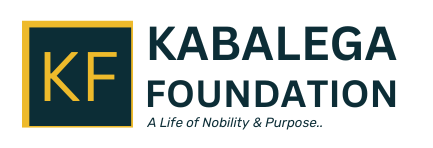2nd Kabalega Memorial Lecture: A Reflection on Leadership Pathways for Community Transformation through Culture, Knowledge, and Innovation.
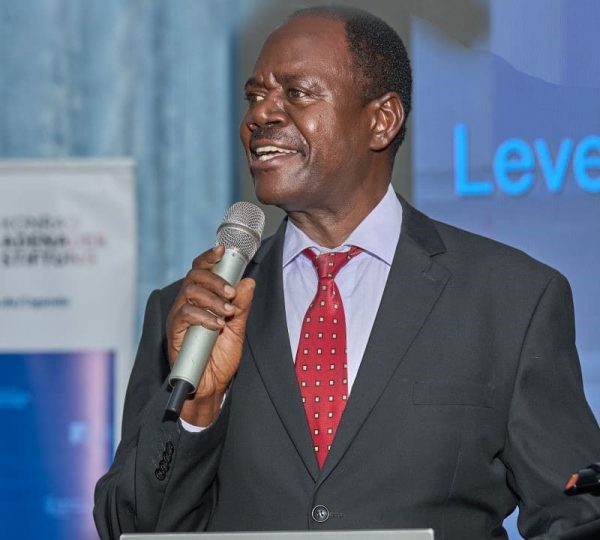
Prof. Julius Kiiza delivering the 2nd Kabalega Memorial Lecture Keynote Address Speech
Hoima Resort Hotel | October 3, 2025
On the third day of Kabalega Independence Week, Hoima slowed down—not in pace, but in posture. The energy shifted from music and marketplaces to quiet thought and meaningful dialogue as a multi-generational crowd gathered for the 2nd Kabalega Memorial Lecture, hosted at Hoima Resort Hotel.
Under the theme “Culture, Knowledge & Innovation: Reimagining Leadership for Community Transformation,” the event felt less like a traditional lecture and more like a collective reflection—a search for authentic, homegrown solutions to Uganda’s most pressing leadership and development challenges.
This landmark event was organized by Kabalega Foundation in partnership with the Bunyoro-Kitara Kingdom, and supported by Konrad Adenauer Stiftung, long recognized for its work in democracy, governance, and civic education.
More Than a Lecture — A Reflection on the Past, Present, and Future
The event opened with traditional music, and dance—not as cultural decoration, but as a grounding reminder of what came before governance: community, rhythm, and meaning.
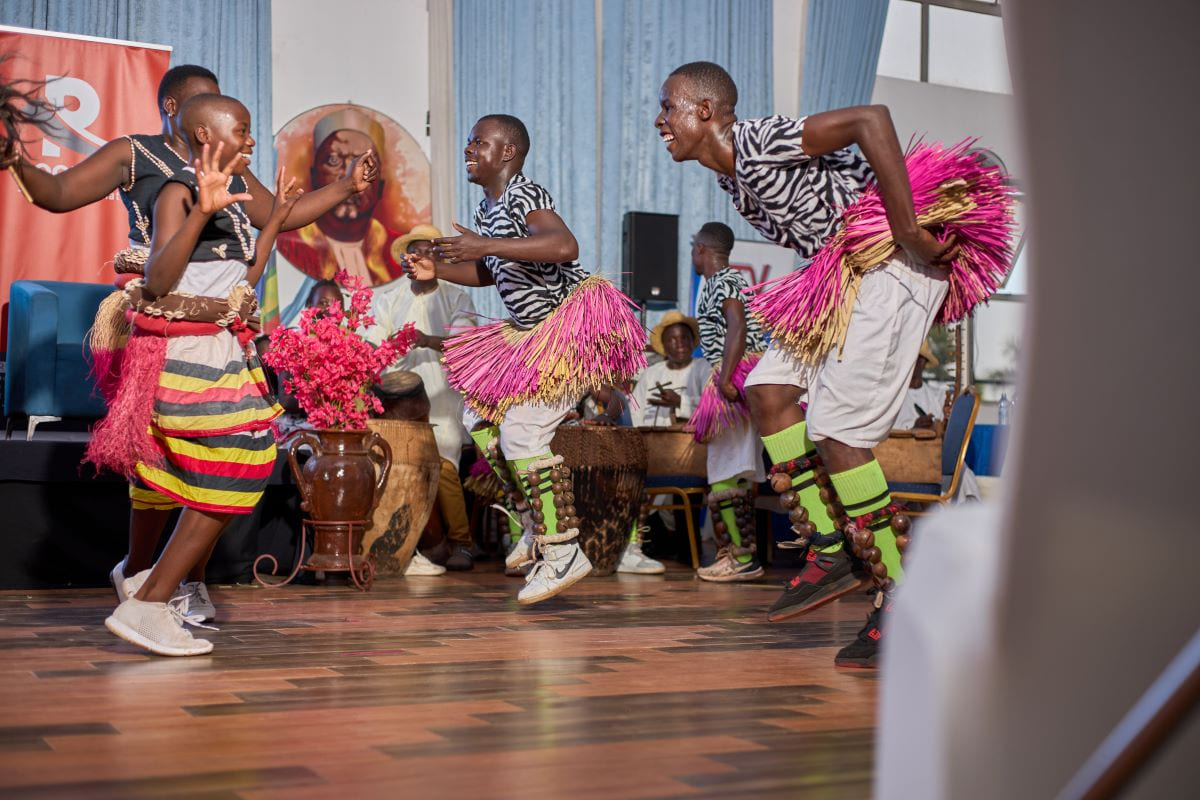
Cultural dances perform before the start of the Memorial Lecture.
A Call for Empathetic, Inclusive Leadership
Remarks by Mr. Bernard Mukhone – Programmes Manager, Konrad Adenauer Stiftung Uganda
Speaking on behalf of the Konrad Adenauer Stiftung (KAS), Mr. Bernard Mukhone brought a thoughtful lens to the conversation, challenging the audience to reimagine what leadership could—and should—look like in Africa today. “How do we build leaders who truly serve all people, including marginalized communities?” he asked. His answer: leaders must listen deeply, respect the histories of their people, and have the courage to ask how things can be done differently.
He emphasized the importance of education and democratic dialogue as cornerstones of accountable leadership. True transformation, he said, requires partnerships—between traditional and modern institutions, between civil society and government, and between local wisdom and global ideas. “As we honor the legacy of Kabalega today,” he said, “let us also commit to nurturing a new generation of leaders who are not only visionary, but also empathetic, inclusive, and innovative.”
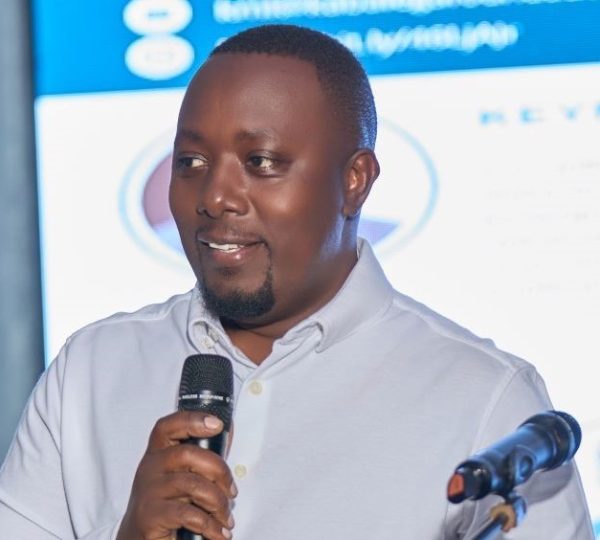
Mr. Bernard Mukhone, the Programme Manager and representative of Konrad Adenauer Stiftung, a key lecture partner delivering opening remarks.
Mr. Mukhone closed by reaffirming KAS’s support for initiatives like the Kabalega Memorial Lecture, which provide platforms for critical thinking and shared vision. “Leadership must be a force for dignity and transformation for all,” he concluded—a sentiment that echoed the purpose of the day.
Then came the keynote.
“What if leadership isn’t about power—but about purpose?”
That was the question posed by keynote speaker Professor Julius Kiiza, who delivered a hard-hitting, deeply thoughtful address. Drawing from African history, economic trends, and personal experience, Professor Kiiza reminded the room that Omukama Kabalega was not just a historical figure—but a model of transformative leadership for today.
Kabalega was a monarchist who believed in leadership that was rooted, responsive, and forward-looking. His style mirrored what modern military science now calls “mission command”—leadership with clear vision, local accountability, and community involvement.
“Leadership is not about occupying space,” Professor Kiiza said. “It’s about catalyzing change.”
He warned against rulers who rule for ego, not outcomes; against systems that reward mediocrity and stunt innovation; and against mindsets that confuse culture with stagnation.
A Grounded Panel Conversation
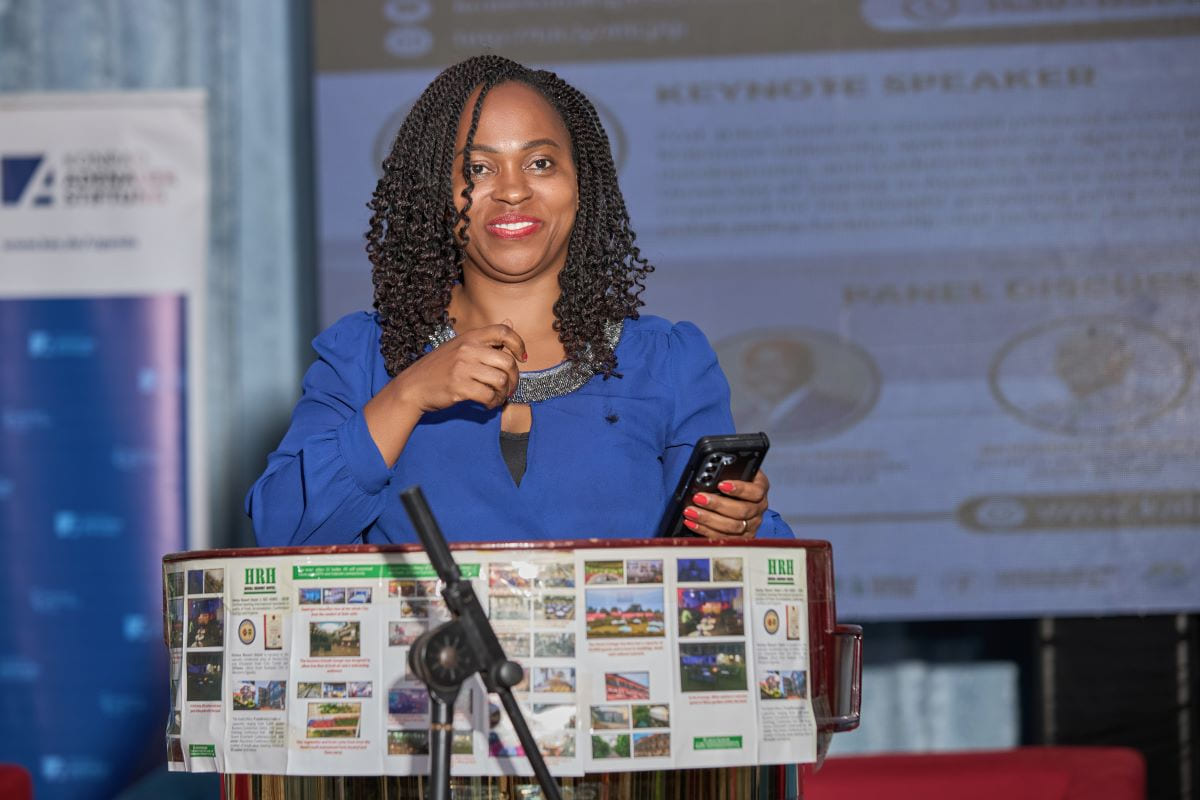
Dr. Cindy Evelyn Magara taking up the stage for the panel discussion moderation
With a panel of diverse representation moderated by Dr. Cindy Evelyn Magara, it delved into real conversations about what leadership means today, and where it must go.
-
Owek. David F.K. Mpanga, who also represented the Prime Minister of Buganda Kingdom at the event spoke passionately about the continuing role of cultural institutions in shaping modern governance—not by resisting progress, but by guiding it with integrity and identity.
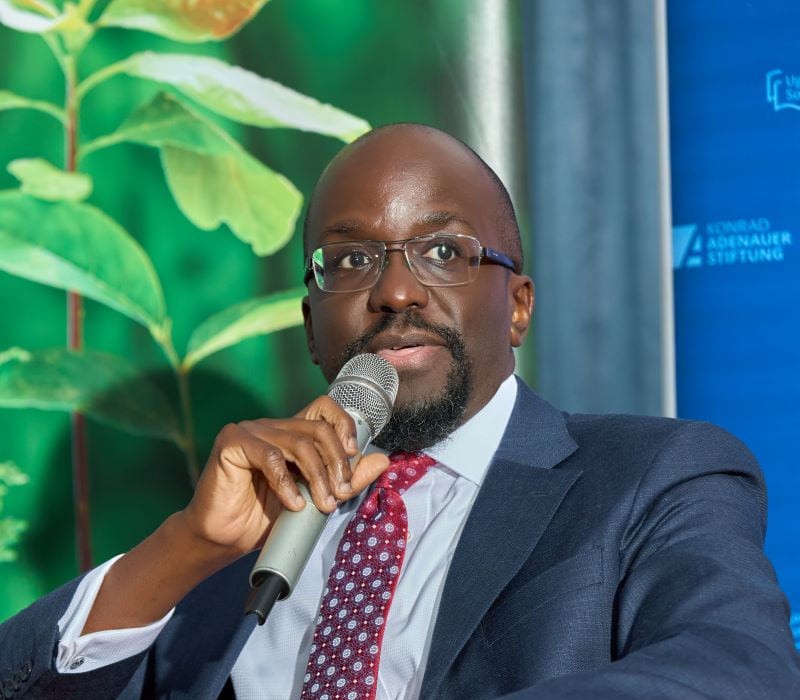
Owek. David F.K Mpanga delivering his remarks during the panel discussion
-
Dr. Lenard Nalubo, a leading AI researcher and founder of the Bunyoro Development Think Tank, urged the audience to stop seeing technology as a foreign concept, and emphasized the role of AI and digital innovation in preserving culture—from 3D scanning of heritage sites to digital storytelling in native languages. He called for tech centers in industrial parks, stronger digital infrastructure, and tools to ensure Africa becomes not just a user of technology—but a creator of it.
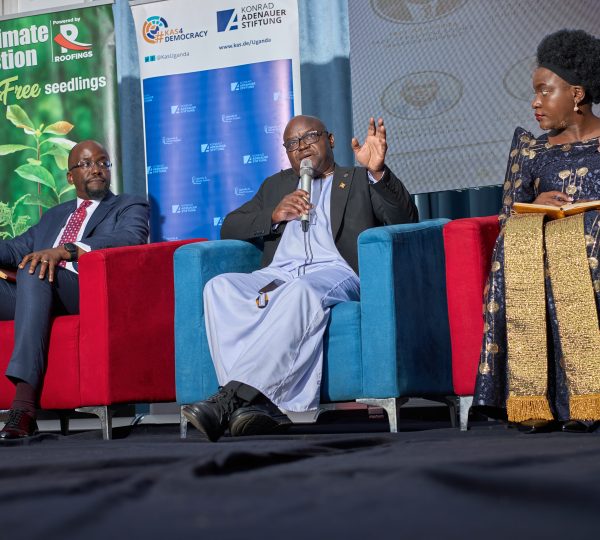
Dr. Leonard Nkalubo delivering his remarks during the panel discussion
-
Nancy Kalembe, a former presidential candidate, shared the challenges of navigating male-dominated spaces as a woman, offering both critique and hope for more inclusive, empathetic leadership.
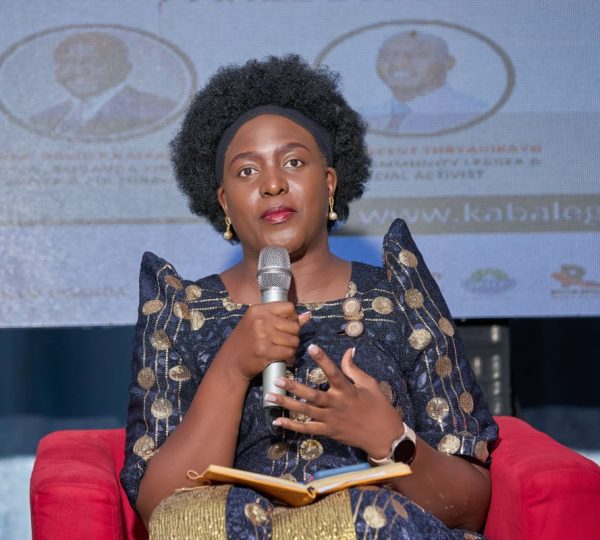
Ms. Nancy Linda Kalembe delivering her remarks during the panel discussion
-
Innocent Turyahikayo, a youth leader, was blunt, raising critical question: “Who is truly there for the youth?” Despite young people making up the majority of Uganda’s population, they often remain sidelined in key decisions and development initiatives. He urged leaders—government officials, cultural custodians, and religious figures alike—to recognize the vast potential of young people and take collective responsibility for their empowerment.
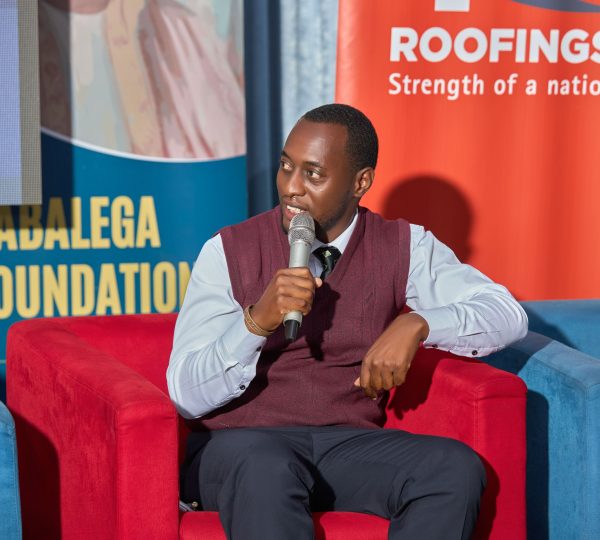
Mr. Innocent Turyahikayo delivering his remarks during the panel discussion
-
Highlighting the emerging oil economy as a pivotal opportunity, Innocent called for deliberate action to position youth as active participants, not mere spectators, in national development. He advocated for the creation of an innovation fund dedicated to supporting youth-led ideas and projects, ensuring that development efforts are inclusive and responsive to young people’s aspirations.
He posed a vital question to the audience: “Who is mentoring our young people to become the leaders of tomorrow?”
Innocent commended Kabalega Foundation for its forward-thinking initiative to establish the Kabalega Institute of Leadership & Cultural Studies (KILCS), expressing optimism that this platform will significantly contribute to nurturing youth leadership and driving sustainable development across the region.
Words from Our Partners and Leaders
The event featured important speeches from key partners, underscoring the spirit of collaboration and shared vision.
Bunyoro-Kitara Kingdom Representative
Owek. Atuha Moses, representing the Prime Minister of Bunyoro-Kitara Kingdom, expressed pride in the collaboration, stating:
“This lecture series rekindles the spirit of our ancestors and inspires us to lead with wisdom and humility. Kabalega was a visionary who understood the power of unity and culture. We see this event as a continuation of that legacy.”
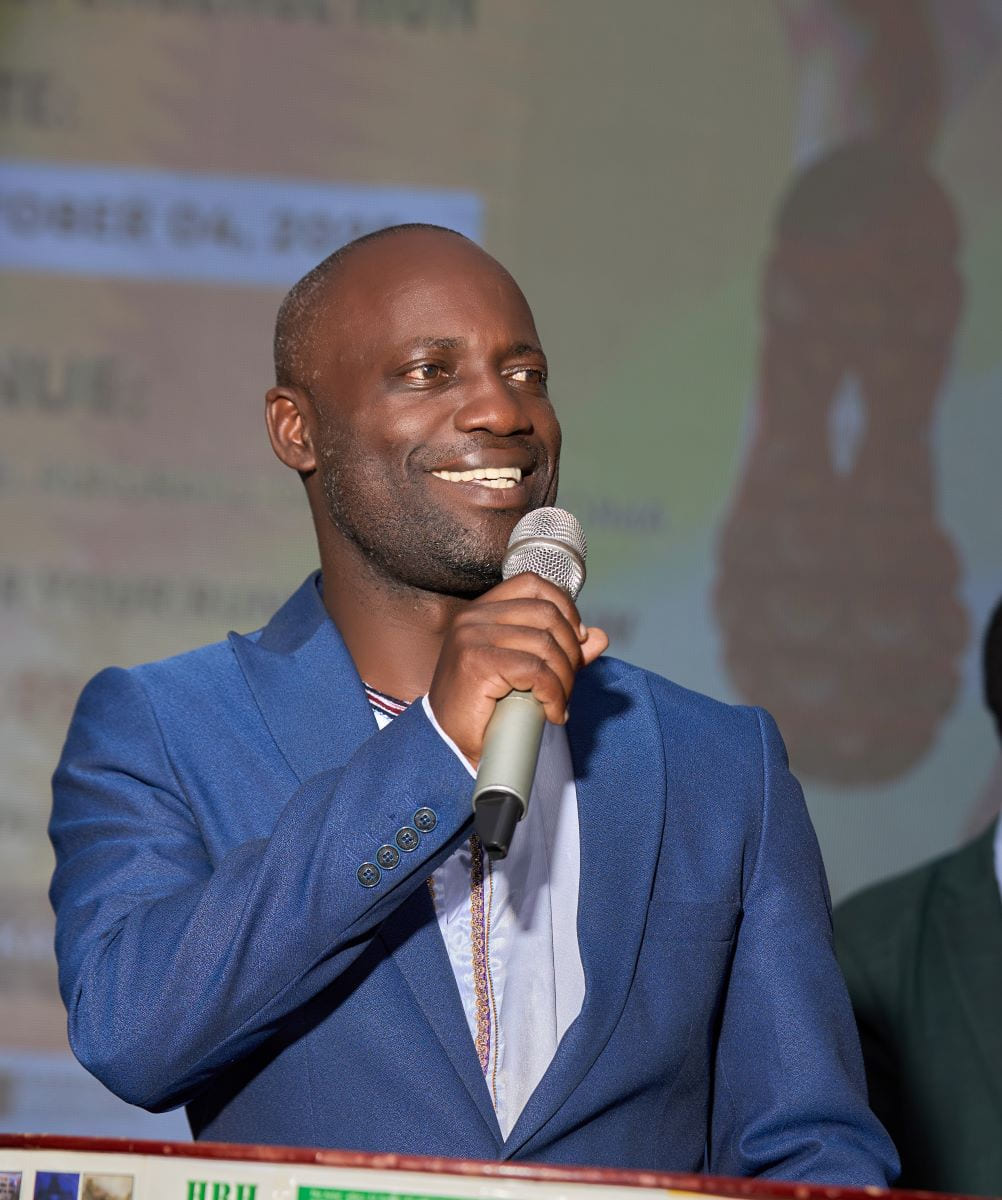
Owek. Atuha Moses delivering remarks on behalf of the Kingdom
He also noted:
“Modern challenges require traditional values as their foundation. We honor Kabalega not as a relic of the past, but as a guide for today’s leadership.”
Bank of Uganda Representative
Owek. Robert Owagonza Abwooli, representing Bank of Uganda, addressed the audience with a message of economic and social transformation:
“Bank of Uganda is honored to support initiatives that blend heritage with innovation. As custodians of our financial systems, we recognize the vital role culture plays in shaping economic behavior and sustainable growth.”
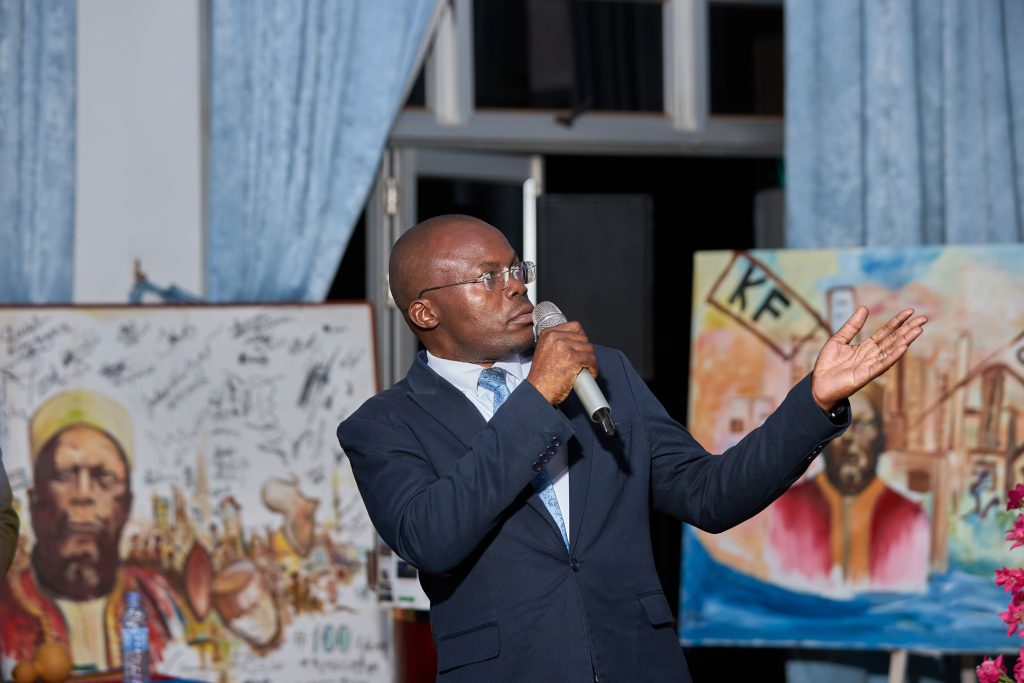
Owek. Robert Owagonza Abwooli, representing Bank of Uganda; one of the Lecture sponsors delivering his message
He added:
“The Kabalega Institute’s approach to leadership education will equip new generations with the tools to lead Uganda into a future that respects both tradition and progress.”
Executive Director, Kabalega Foundation
Prince Dr. James Isagara Kisoro’s remarks tied together the event’s themes with a hopeful call to action:
“We believe this platform can be leveraged—just as we have always said in our communications—to draw inspiration from a hero’s legacy to drive social, cultural, and economic transformation within our society.”
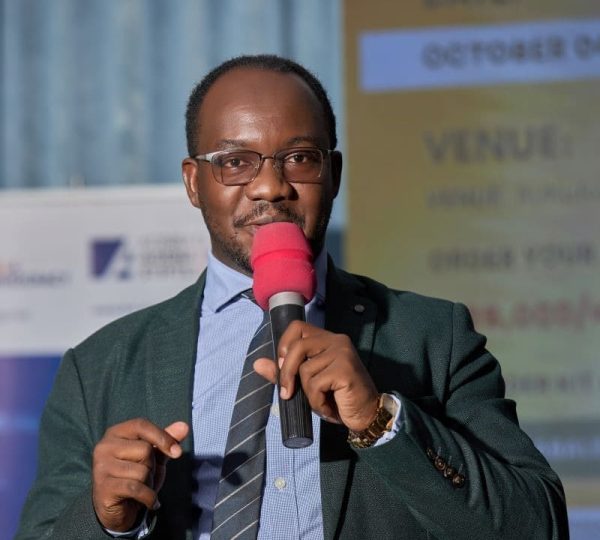
Prince Dr. James Isagara Kisoro; the Executive Director – Kabalega Foundation delivering his speech
He urged attendees, especially youth, to see culture as a foundation, not a hindrance:
“By holding our heritage close while embracing technological advancements, we open ourselves to new opportunities. Culture and innovation are not enemies—they are partners in progress.”
Dr. Kisoro also paid tribute to the team and partners:
“Without the tireless efforts of our team and the support of partners like Konrad Adenauer Stiftung, Bank of Uganda, Centenary Bank, Roofings Uganda, among others , this lecture series and the launch of KILCS would not be possible.”
In closing, he invited the community to take collective responsibility for the future:
“The Kabalega Institute of Leadership and Cultural Studies is a commitment to nurture leadership and culture as vital lessons for societal progress. Let us all take part in making this vision a reality.”
Throughout the day, interludes of traditional music, and dance, reminded everyone that culture is not a costume—it is compassing and can be used to communicate, and that Leadership is not just about what you say; it’s about how you live, remember, and build.
This message resonated especially with younger participants, many of whom had never heard culture and innovation spoken of in the same breath.
From Talk to Action: Launching KILCS
Perhaps the most tangible outcome of the day was the official launch of the Kabalega Institute of Leadership & Cultural Studies (KILCS) — www.kilcs.org.
“We don’t want these ideas to end in this room,” said Dr. Kisoro.
“KILCS will be a platform for research, leadership training, cultural preservation, and youth mentorship—all grounded in African realities.”
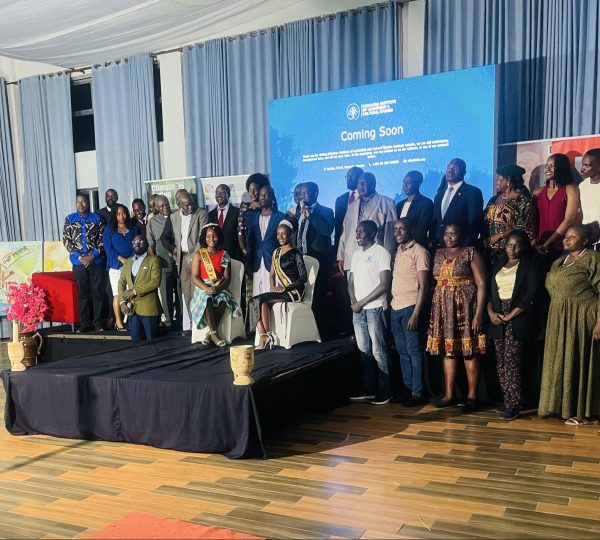
A group photo of select lecture participants upon the launch of the Kabalega Institute of Leadership & Cultural Studies
Though still in early development, KILCS aims to:
-
Train leaders across political, cultural, and entrepreneurial sectors
-
Promote indigenous knowledge systems and cultural preservation
-
Provide ethical tech education with African context
-
Engage youth in meaningful, values-based community development
The launch received enthusiastic support from the Bank of Uganda, Kingdom representatives, and development partners in the room.
A Legacy, Revisited by Family and Future Leaders
The evening also featured emotional moments from Kabalega’s descendants, including Prince John Nyabongo Olimi, a 2nd generation descendant, and former Chief Prince of Bunyoro-Kitara who reminded the audience that Kabalega founded one of the earliest leadership academies in Galuhuma, in present day Mwenge—long before modern governance structures took shape.
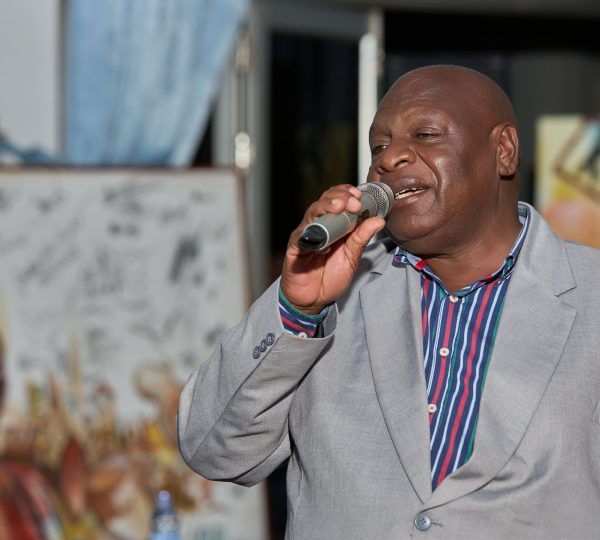
Prince John Nyabongo Olimi delivering his remarks on behalf of the decendants of Omukama Cwa II Kabalega
“If others can preserve culture while advancing AI—so can we. China does it. The Arab world does it. We don’t have to lose ourselves to progress. I thank my young brother, Dr. Kisoro for setting up such platforms to honor the legacy of our grandfather and for reflection on his legacy for transformation of today’s society” Prince John Nyabongo Olimi noted.
Dinner, Film & Forward Motion
The day ended with a Dinner—a relaxed space for informal networking. The screening of the short film “Call 112 – The Truth and Nothing But the Truth” Konrad Adenuaer Stiftung provided a sobering reflection on the information age, misinformation, and the need for truthful leadership in noisy times.
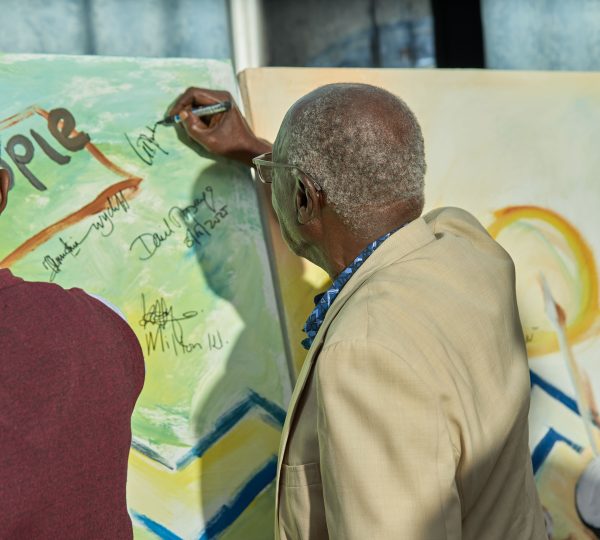
Owek. George Muhuruzi, head of Bunyoro-Kitara Kingdom Royal Regalia, and one of the Elders who attended the lecture signing the art canvas painted during the lecture
Five Big Ideas That Emerged
From all the voices, a few key themes rang loud and clear:
-
Unify Over Fragmentation
– Reinvent regional leadership by recombining splintered districts. -
Revive Ubuntu
– Leadership must be humane, community-first, and dignity-based. -
Invest in Innovation, Not Just Employment
– Move youth beyond boda-bodas. Build coders, engineers, thinkers. -
Cultural Institutions Are Development Partners
– Use them for public health, agriculture, and education. -
Youth Inclusion Must Be Structural
– Culture, education, and leadership must be accessible—not ornamental.
The full panel, along with the moderator (extreme right) in session during the lecture
Looking Back to Lead Forward
The 2nd Kabalega Memorial Lecture wasn’t just a look back. It was a look ahead—a gathering of minds and hearts committed to a Uganda that is not defined by western trends or borrowed systems, but by its own voice, values, and vision.

A cross-section of participants listening attentively during the lecture keynote addresss by Prof. Julius Kiiza.
Special Thanks To:
- Bunyoro-Kitara Kingdom
- Konrad Adenauer Stiftung
- Bunyoro University Task Force
- Bank of Uganda
- Roofings Uganda
- Uganda Energy Credit Capitalization Company (UECCC)
- Centenary Bank
- Pride Bank
- Hoima Resort Hotel
- Uganda Broadcasting Cooperation
- Nation Media Group
- Capital FM
- Kabalega TV
- Kitara TV
- Prof. Julius Kiiza, the Lecture Keynote Speaker
- Dr. Cindy Magara (Lecture Moderator)
- All Panel Discussants
- Kabalega Foundation Secretariat
- The Omukama Cwa II Kabalega Royal Family
- YALI representatives
- Bunyoro Tourism Queens
- All participants
See full photo gallery here:
https://kabalegafoundation.org/photo-gallery/the-2nd-kabalega-memorial-lecture-2025/
